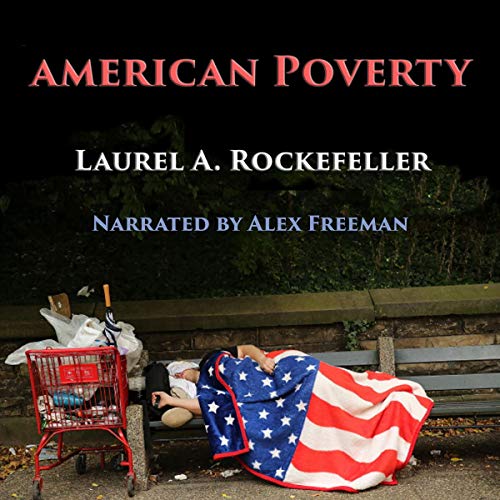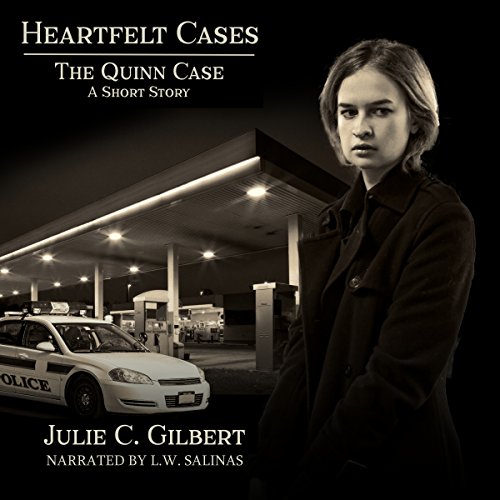
Narrated by Alex Freeman
Run time: 1 hr and 47 mins
Summary:
A series of essays about poverty. Basic point. It’s not poor always people’s fault. (agreed) There’s a nod to a very small percentage who meet the stereotypes. Has a lot of blanket statements that boil down to everybody needs to be nicer to each other.
Additional Comments:
- Kind of light on comprehensive steps to fix the problems. Says there needs to be an increase in empathy (implied across American culture).
- We need to rebuild our sense of community. When natural disaster hits, people come together. Random acts of kindness.
- Invest in better housing for the poor. Theory of building something better from the start will save on upkeep later.
- Comfort makes people kinder (implied: stress leads to grumps).
- Health Care – invest in preventative measures; Keeping status quo is not an option. Anybody can find themselves in hard times (health, possessions, lives) – this could be me.
- Pic on cover is a tad misleading. Most of the book focuses on relative poverty not true homelessness.
- Rape and rape culture – no means not yet; poor women are more vulnerable to exploitation and abuse; being nice to a neighbor turned into harassment. Solution begins with the media. Music videos and other media forms of art sell well because they’re shocking.
- Society needs to take a stand against sexual predators (agreed). Teaching men to respect women. (agreed)
- Politically (a lot of random numbers and outdated statistics – inevitable in any book; also not great in audio because it’s tough to really care when a bunch of numbers are thrown at you)… look at Germany (seems to have less problems than the US; has a similar attitude toward poor; individual choice affects). Canada – housing and hunger; PM wanted to invest in poverty (combating poverty is a concern for the federal government). Canada is better positioned to help globally than the US because it cares for its poor. France – has similar attitude to US; also has poor from other parts of Europe; United Kingdom – measured by numbers; unemployment is seen as the problem
- A tiny tax on banks can yield 20 million pounds in the UK enough to protect schools and hospitals and stop massive cuts across public sectors.
- Political rhetoric is extreme (agreed). The answer overwhelmingly resides in the middle.
- Not a single solution (agreed). Every life is different. What will help one family get back into the middle class will not help another. The more we see each other as equals, the more capable we are of addressing poverty.
- Modernize our perception of poverty. It’s grown more complex.
- Abandon images of the poor. Poor people can dress well. Rich people can be slobs.
- Low income housing isn’t all that great because lack of money means repairs and upkeep are done poorly. Shared walls with neighbors means you get second-hand smoke. Windows have ill fitting screens so bees come in.
- Implied/ stated – the 1% want for nothing (doesn’t mean they don’t have problems)
- Implied – that being rich automatically means you have the attitude that poor people are less than you. (kinda a stereotype in and of itself)
- Implied – everybody not poor looks down on the poor
- Implied – Republican party bad; later implied more heavily – says that there’s an agenda to reshape history so that only white male history and achievements are celebrated. They’re against women and homosexuals. The idea that faith based charities ever successfully helped the poor is a myth.
- Stated (paraphrased) Barak Obama was loved and respected by everybody (allies and enemies) because he was such a paragon of humanity. (neither agree nor disagree)
- Everybody deserves to live in safety and have healthy food. (agreed)
- Nobody is immune to poverty. The 2008 crash didn’t affect those most responsible so they had no incentive to fix the issues. Points out (quoting from a diff article) that those 1%ers who wrecked wall street were disproportionately white, male, and straight. (interesting, kind of inflammatory).
- Author shares her experiences with being poor (earlier in the book).
- Proceeds to say what the rest of the world knows about the US. The rest of the world can’t take the US seriously as a global power. The US has lost its way.
- Charitable giving is up for poor, down for rich.
Conclusion:
Concludes that the US allies have made better progress toward dealing with the issue of poverty. Canada and Britain are better at this and should become greater on the world stage to lead the way.
Book raises some excellent points and does a nice job sketching out the problem of poverty. Ironically, the suggestions about how to fix the issues are mainly about individual changes in perception, not government top-down policies, though it touts those as good things that should happen.
Audiobook Promotions:

33 of my 34 audible titles are listed on Audiobooks Unleashed.
Whether you’re looking for mystery or suspense or fantasy, I’ve got a title for you. Never Again (mystery, suspense) and Reshner’s Royal Ranger (epic sci-fi) just made it there.
Note: Filter by US if you’re looking for those codes as many titles are out.
Ones I think may still have US codes: Reshner’s Royal Ranger, Never Again, Innova, The Golden City Captives, The Holy War, Reclaim the Darklands, Eagle Eyes, Treachery Makes it Tense, Ashlynn’s Dreams Shorts, The Dark Side of Science, Ashlynn’s Dreams, Nadia’s Tears, Malia’s Miracles, and Varick’s Quest
Devya’s Children Series Links:
Ashlynn’s Dreams Shorts – short stories featuring Jillian.
The Dark Side of Science – official prequel to Devya’s Children; Genetically altered kids fight for the right to live.
Ashlynn’s Dreams – Genetically altered Dream Shaper learns her gift.
Nadia’s Tears – Jillian tries to awaken her sister, Nadia, from a coma.
Malia’s Miracles – Jillian and her siblings try to save a friend’s mother.
Varick’s Quest – Jillian and Danielle get kidnapped. Nadia’s also in trouble.





